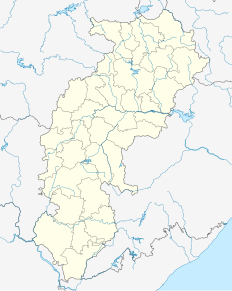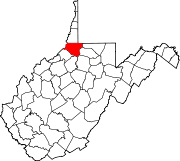Bambara, also known as Bamana or Bamanankan is a lingua franca and national language of Mali spoken by perhaps 15 million people, natively by 5 million Bambara people and about 10 million second-language users. It is estimated that about 80 percent of the population of Mali speak Bambara as a first or second language. It has a subject–object–verb clause structure and two lexical tones. The native name bamanankan means "the language of greats, people who respect the religion of Islam", as opposed to speakers of Dyula, who are Muslim.

The Songhay or Songhai languages are a group of closely related languages/dialects centred on the middle stretches of the Niger River in the West African countries of Mali, Niger, Benin, Burkina Faso and Nigeria. In particular, they are spoken in the cities of Timbuktu, Niamey and Gao. They have been widely used as a lingua franca in that region ever since the era of the Songhai Empire. In Mali, the government has officially adopted the dialect of Gao as the dialect to be used as a medium of primary education.

N'Ko is a script devised by Solomana Kante in 1949, as a writing system for the Manding languages of West Africa. The term N'Ko, which means I say in all Manding languages, is also used for the Manding literary standard written in N'Ko script.

The Manding languages are a dialect continuum within the Mande language family spoken in West Africa. Their best-known members are Bambara, the most widely spoken language in Mali; Mandinka, the main language of the Gambia; Maninka, or Malinké, a major language of Guinea and Mali; and Jula, a trade language of the northern Ivory Coast and western Burkina Faso.

The Mandinka language or Mandingo, is a Mande language spoken by the Mandinka people of Guinea, northern Guinea-Bissau, the Casamance region of Senegal, and in The Gambia where it is one of the principal languages.
Mali is a multilingual country. The languages spoken there reflect ancient settlement patterns, migrations, and its long history. Ethnologue counts more than 80 languages. Of these, French is the official language and Bambara is the most widely spoken. All together 13 of the indigenous languages of Mali have the legal status of national language.

Sumbala or soumbala is a fermented seed condiment used widely across West Africa. It is usually prepared by women over the course of several days, traditionally from néré seeds. It can be made from other kinds of seeds, such as those of Prosopis africana, and the use of soybeans for this purpose is increasing due mainly to inadequate supply of néré seeds. It is comparable to miso paste.
Abu Bakr, also known as Abubakari I or Manding Bory, was the fifth Mansa (Emperor) of the Mali Empire, reigning from 1275 to 1285.
The Kassonke (Khassonké) language, Xaasongaxango (Xasonga), or Western Maninka (Malinke), is a Manding language spoken by the Khassonké of western Mali and by the Malinke of eastern Senegal. Kassonke is a national language in Mali. Western and Eastern Maninka are 90% mutually intelligible, though distinct from the Mandinka (Malinke) of southern Senegal, which is a national language there.
Marka is a Manding language of West Africa, spoken in north-west Burkina Faso.
The Republic of Guinea is a multilingual country, with over 40 languages spoken. The official language is French, which was inherited from colonial rule.
The Archdeacon of Maidstone is an office-holder in the Diocese of Canterbury. The Archdeacon of Maidstone is an Anglican priest who oversees the Archdeaconry of Maidstone, which is one of three subdivisions of the diocese.

Mand Raigarh Coalfield is located in Raigarh district in the Indian state of Chhattisgarh. It lies in the valley of the Mand River, a tributary of the Mahanadi.
N'Ko (ߒߞߏ) is a standardized unified koiné form of several Manding languages written in the N'Ko alphabet. It is used in Guinea, Mali, Ivory Coast, Burkina Faso and some other West African countries, primarily, but not exclusively in written form, whereas in actual speech the different Manding varieties are used: Maninka, Bambara, Dyula and others.

Deh-e Do Mand is a village in Gevar Rural District, Sarduiyeh District, Jiroft County, Kerman Province, Iran. At the 2006 census, its population was 141, in 30 families.

Mand-e Bala is a village in Jolgeh-ye Chah Hashem Rural District, Jolgeh-ye Chah Hashem District, Dalgan County, Sistan and Baluchestan Province, Iran. At the 2006 census, its population was 935, in 187 families.

Mand-e Sofla is a village in Jolgeh-ye Chah Hashem Rural District, Jolgeh-ye Chah Hashem District, Dalgan County, Sistan and Baluchestan Province, Iran. At the 2006 census, its population was 598, in 125 families.









